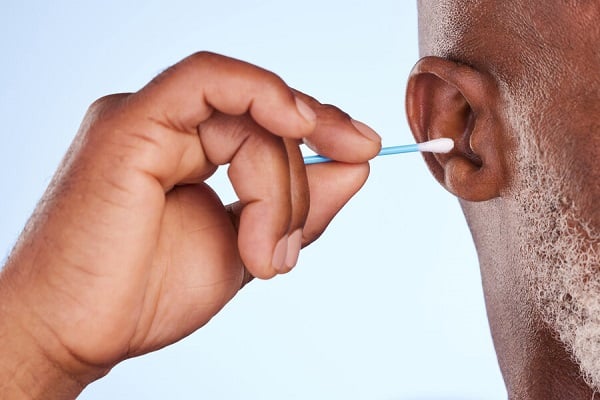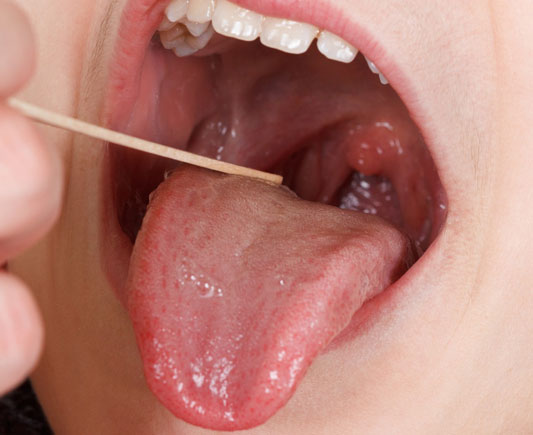Health
Seven tips to improve ear health

Most people often prioritize the wellness of their skin, eyes, and other organs, while overlooking one of the most vital parts of the body; the ears. Meanwhile, paying attention to the health of your ear is crucial for our overall well-being.
According to the World Health Organization, about 360 million people suffer from some degree of hearing impairment ( 328 million adults and 32 million children). With prevalence to sub Saharan Africa and 8.5 million Nigerians.
However, taking the right steps henceforth can help reduce your risk of hearing loss.
Without further ado, here are the essential dos and don’ts of maintaining good ear health.
- Practice safe listening habits
In this age, most people now use headphones or earbuds to distract themselves from reality.
However, while using these buds, make sure to keep the volume at a moderate level to prevent noise-induced hearing loss.
Listening to loud music or volume can damage your hearing, especially when using earbuds that sit directly next to your eardrum.
So reducing the volume and limiting prolonged usage can improve your ear health.
- Avoid inserting objects into the ear canal
Never insert cotton buds, hairpins, or any other objects into your ear canal.
When you want to clean your ears be extra conscious, careful, and avoid using sharp or pointed objects. As these objects may injure the ear canal or eardrum and can even push wax deeper, irritate the ear canal, or cause injury.
Also using cotton buds is a common but inadvisable way to remove earwax. Earwax is normal and self-cleans the ear, preventing dust and particles from getting in.
So inserting buds or tissues in the ear could cause serious harm to the ear drum and canal with the potential for temporary or even permanent damage.
- Keep the ear dry
It is also important to always keep the ear dry to prevent ear infections called otitis media.
Otitis media is an outer ear infection that is caused when there is water residue inside the ear canal, so it becomes a breeding ground for bacteria.
To avoid this, always dry your ears thoroughly after bathing or swimming, as excess moisture can cause bacterial build-up, compromising the ear canal.
If you sense water residue, drain your ear by tilting your head to one side.
- Avoid prolonged exposure to loud noises
Loud noises that emanate from power tools, concerts, construction sites, and firearms can all gradually lead to hearing loss, especially when you’re exposed to them on a regular basis.
Be sure to always use ear protection such as earplugs and earmuffs if you are constantly going to be in a noisy environment. As exposure to these noises can lead to noise-induced hearing loss or tinnitus.
Also, be mindful of the noise levels in your environment and take necessary precautions.
- Avoid ignoring any ear pain or discomfort
Whenever you experience ear pain, fullness of the ear, drainage, or signs of infection; don’t hesitate to seek medical attention promptly.
Treatment for ear problems should not be delayed as the pain won’t improve without the right treatment.
The longer you leave an ear problem, the longer it may take to treat it. So seek professional help and avoid self-medication.
- Give your ears a break
You read right, just like the other part of the body, the ears also need breaks to function well.
This is mostly related to people who are constantly exposed to loud noise from environmental sources, concerts, and so on.
The noises from these sources have the potential to cause temporary or permanent hearing loss.
So when in a very loud environment, take frequent breaks by stepping outside to separate yourself from the noise, even if it is just for five minutes.
After the event, try to spend time in a quiet environment for at least one day to allow your ears to rest and recover.
Research has found that you need about 16-48 hours of quiet rest to recover from the previous noise.
- Visit the doctors for regular ear check-ups
Just like every other part of your body, your ears also need a periodic check-ups by professionals.
Hearing screening and exams are important as they help quickly detect hearing loss and promote instant treatment.
You should get recommendations and advice from your medical professional as hearing tests are done according to the person’s risk and environment.
Take care of your ears. Always take preventative measures to stay ahead of hearing loss.
Health
Five benefits of drinking Okra water

Of recent, the trend of drinking okra water has gained traction backed with compelling evidence of its numerous health benefits.
In this article, we dive into the world of okra water and uncover five amazing key benefits of incorporating okra water into your daily diet, thereby unlocking the nutritional power hidden within:
Improved digestive health
Okra water is rich in soluble fiber, which aids digestion by promoting regular bowel movement and preventing constipation. It contains a gel like substance called mucilage that soothes and coats the digestive tract, reducing inflammation and easing symptoms of gastrointestinal discomfort. regular consumption of okra water can contribute to a healthier digestive system .
Weight Loss Management
Okra is low in calories and contains high fiber content, which can help make one fuller for longer . The soluble fiber in okra water helps increase feelings of fullness reducing appetite as well as unnecessary cravings. By including okra water into a balanced diet, individuals can support their weight loss goal in a sustainable manner.
Blood Sugar regulation
If you are watching your blood sugar levels or have a loved one doing so, this benefit of okra water would be really helpful as it tends to have potential benefits for blood sugar regulation. Okra contains soluble fiber, which can slow down the absorption of sugar in the digestive system, helping to stabilize blood sugar levels . By incorporating okra water into your diet, you may experience more consistent blood sugar levels and reduce the risk of complications associated with diabetes.
Heart Health Promotion
Okra is rich in nutrients like fiber, antioxidants and vitamins that contribute to a healthy heart. The fiber content in okra can help lower cholesterol levels, while the antioxidants can help reduce inflammation and protect against heart disease. However, it’s important to remember that okra water alone is not a magic solution. A balanced diet, regular exercise, and overall healthy lifestyle are key for promoting heart health.
Skin and Hair Benefits
Okra water contains vitamins and minerals, including vitamin C and biotin, which can indeed benefit both skin and hair health. Vitamin C acts as an antioxidant, helping to protect the skin from oxidative damage caused by free radicals, thereby promoting healthier skin. Biotin, also known as vitamin B7, supports the health of hair by promoting stronger, thicker strands. Incorporating okra water into your diet or using it in beauty treatments may provide a natural way to enhance the health and appearance of your skin and hair.
With this benefits of okra water stated, if you happen to be a naysayer to okra water, you should definitely think about its benefits.
Health
Symptoms, risk factors, treatment — what to know about throat cancer

On Thursday, Ogbonnaya Onu, a former minister of science and technology in the Muhammadu Buhari administration, died aged 72.
Reports suggest that Onu, who was the first civilian governor of Abia state, grappled with throat cancer before his demise.
If you came across the news, you may have wondered for a quick minute about throat cancer and maybe imagined how the symptoms would physically manifest. Perhaps you imagined a lesion or even a swollen neck.
What is throat cancer?
It refers to a type of cancer that develops in the throat, also known as the pharynx.
The human throat is a muscular tube that begins behind the nose and ends in the neck. The voice box sits below the throat and contains the vocal cords.
The two types of throat cancer are pharyngeal and laryngeal cancers, also known as cancer of the pharynx and the larynx.
What are the symptoms of throat cancer?
Symptoms of throat cancer include persistent cough, sore throat, a lump in the throat that does not heal, changes in voice, such as hoarseness or not speaking clearly, difficulty swallowing, ear pain, and sudden weight loss.
What causes throat cancer?
Throat cancer occurs when cells in the throat develop genetic mutations that cause them to grow uncontrollably. The continuous growth kills the normal cells. Then, the accumulating cells can form a tumour in the throat.
It is not clear what causes the mutation that leads to throat cancer. There are, however, factors that can increase the risk of throat cancer.
These risk factors include a family history of cancer, smoking and chewing tobacco, excessive alcohol intake, viral infections including human papillomavirus (HPV) and Epstein-Barr virus, and a diet lacking in fruits and vegetables.
How can one reduce the risk of having throat cancer?
While there are no scientifically proven ways to prevent throat cancer, there are ways to reduce its risk such as eating a diet rich in fruits and vegetables, drinking alcohol in moderation, avoiding smoking, and protecting oneself from HPV.
How is throat cancer diagnosed?
Throat cancer diagnosis involves a few steps. A physical examination will be performed in which a doctor will examine the mouth and throat.
The examination also involves a series of blood tests, while an endoscopy will be carried out.
An endoscopy is when a thin tube with a light on its end is inserted through the nose to look for abnormalities in the throat.
A chest x-ray and computerised tomography (CT) scan may also be carried out.
How is throat cancer treated?
Treatment of throat cancer will depend on the size of the tumour, whether it has spread all over the place, and the overall health of the patient.
The doctor will first need to find out what stage of cancer the individual has, that is, how far it has spread. This helps to determine the best treatment options.
Surgery may be recommended depending on the tumour size and chemotherapy may also be required.
Health
10 safety tips for boat rides

Water transportation, although a vital means of commuting, comes with its risks.
The recent unfortunate incident involving the Nollywood actor, Pope Odonwodo, known as Junior Pope, is a reminder of the importance of boat safety.
Pope, along with three others, lost their lives in a boat incident.
In a video posted by the late actor on his Instagram page on Wednesday, Pope, who was on a boat without a life jacket, told his followers to see how actors risk their lives to entertain them while pleading with the captain to go slowly as he shouted, “I have three children to raise.”
In the caption, he wrote, “See me lamenting… The risk we take to entertain you; crossing river 9ja yesterday with no life jacket… Na wahoooooo… Who does that ??”
The actor was reported to be travelling by boat away from a film set during the shooting of a movie titled, ‘The other side of Life,’ directed by Adamma Luke.
However, in response to the tragic accident, the Actors Guild of Nigeria, led by its President, Ejezie Rollas, suspended film productions involving riverine areas and boat rides.
Additionally, actors have been advised against participating in any project associated with Luke until further notice.
This incident highlights the need for stringent safety measures when traveling by water.
In this piece, we highlights 10 crucial safety tips for boat riders to ensure a safer experience:
- Wear life jackets: Always wear a properly fitting life jacket when onboard a boat. Ensure that there are enough life jackets for all passengers.
- Check weather conditions: Before setting off, check weather forecasts to avoid sailing in rough or dangerous conditions that could jeopardise safety.
- Follow safety instructions: Listen attentively to the boat operator or captain’s safety instructions and adhere to them diligently. Familiarise yourself with emergency procedures and the location of safety equipment onboard.
- Avoid overloading: Do not exceed the boat’s weight capacity or passenger limit. Overloading can lead to instability and increase the risk of accidents.
- Ensure proper boat maintenance: Regularly maintain the boat, including checking navigation lights, signaling devices, and emergency equipment like fire extinguishers and flares.
- Inform others: Let someone know your boating plans, including your route and estimated return time. This information can be crucial in case of an emergency.
- Be mindful of water conditions: Stay aware of water currents, tides, and potential hazards such as rocks or shallow areas. Navigate at safe speeds and exercise caution near shorelines.
- Monitor fuel levels: Always carry sufficient fuel for your trip and monitor fuel levels regularly. Running out of fuel in open water can be hazardous.
- Ensure children’s safety: Ensure that children wear life jackets and are supervised by adults at all times while onboard. Also, educate them about basic boating safety rules.
- Avoid alcohol and intoxicants: It’s crucial to refrain from consuming alcohol or other intoxicants before or during boat rides. Being sober enables you to make sound decisions and stay alert to potential dangers.
-

 Business1 week ago
Business1 week agoX will start charging new users to post, says Elon Musk
-

 Entertainment1 week ago
Entertainment1 week agoJUST IN: Cubana Chief Priest pleads not guilty to naira abuse charge
-

 News24 hours ago
News24 hours agoFAAN reopens Lagos airport runway after Dana Air incident
-

 Entertainment1 week ago
Entertainment1 week agoCubana Chief Priest arrives court for naira abuse trial
-

 Celebrities1 week ago
Celebrities1 week ago‘Not see you for 6 months, impossible’ — Davido reacts to Cubana Chief Priest’s bail
-

 Business6 days ago
Business6 days agoElon Musk threatens to suspend X accounts doing engagement farming
-

 Celebrities1 week ago
Celebrities1 week agoKai Cenat threatens to sue OnlyFans model, Layla Red who leaked their chats
-

 World1 week ago
World1 week agoDubai international airport cancels flights as flood ravages runway, UAE


















